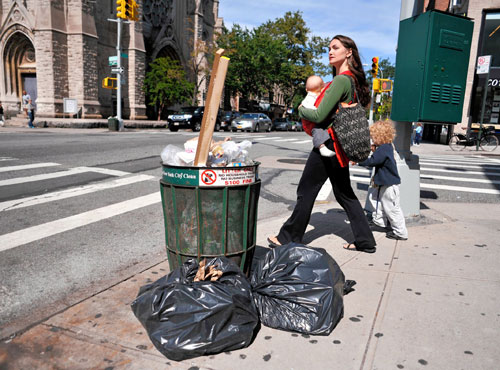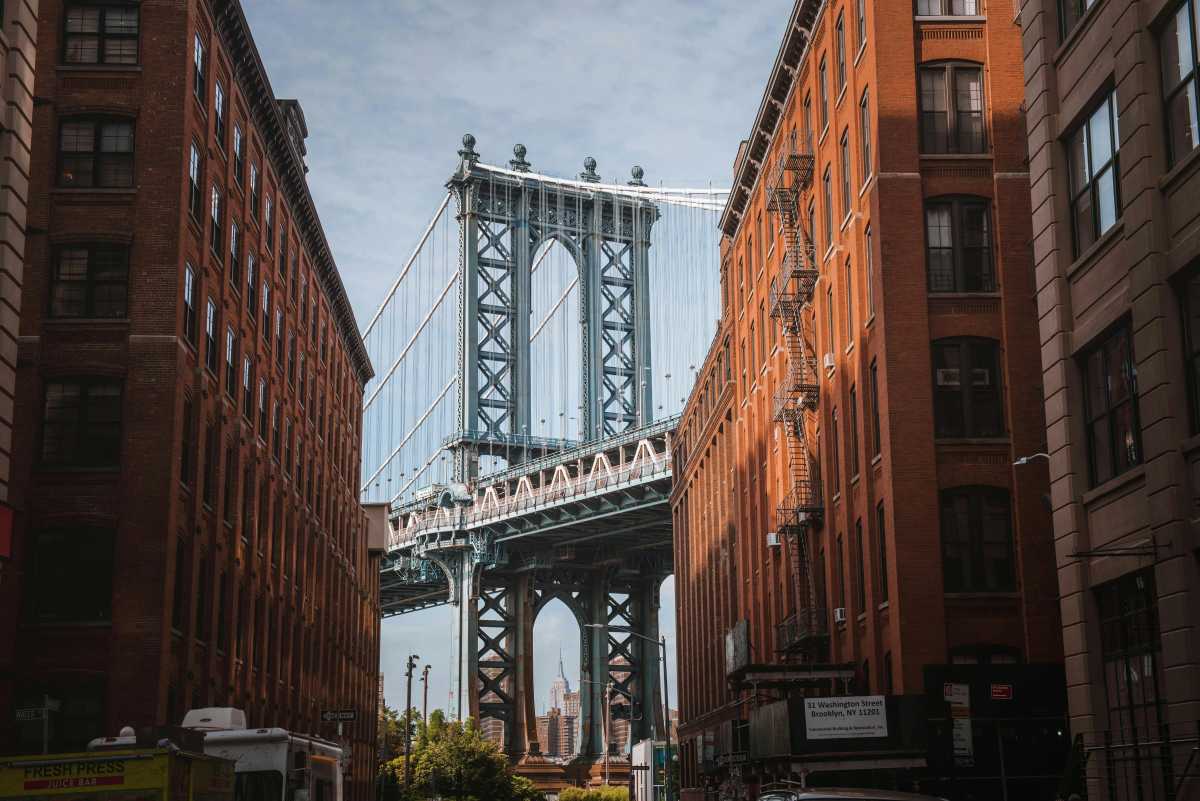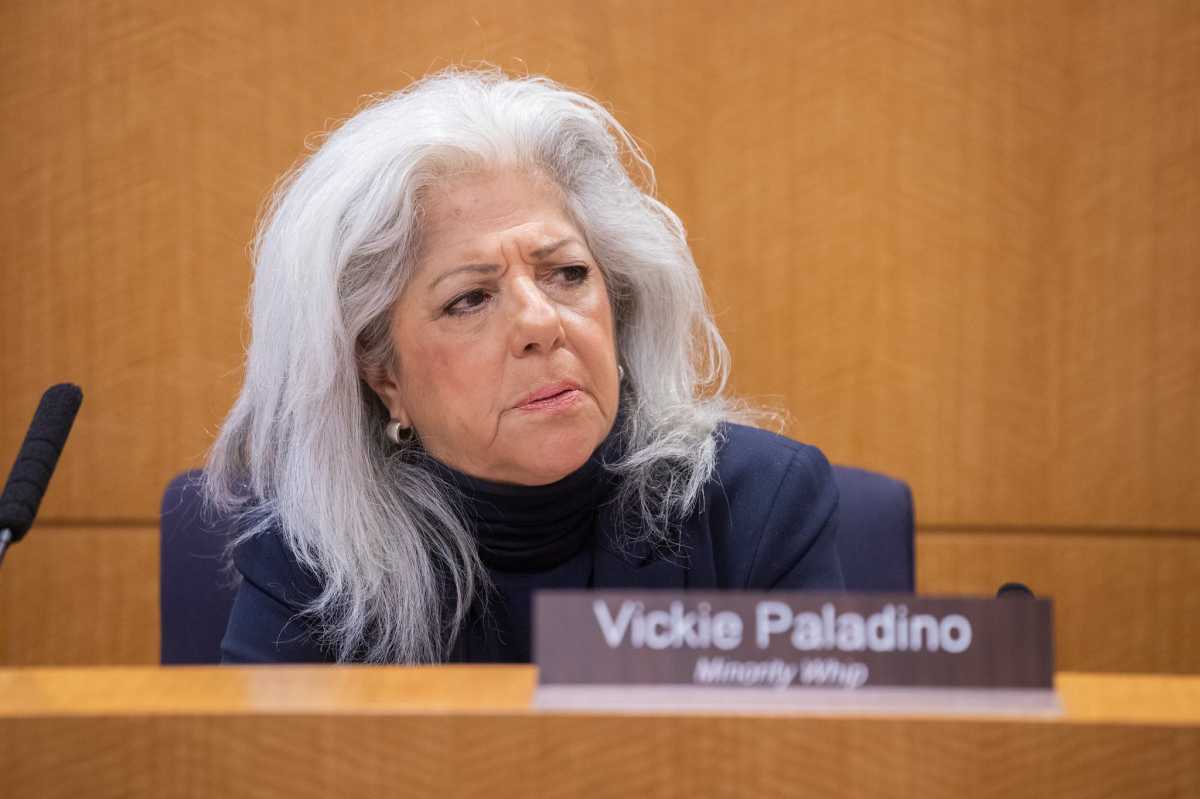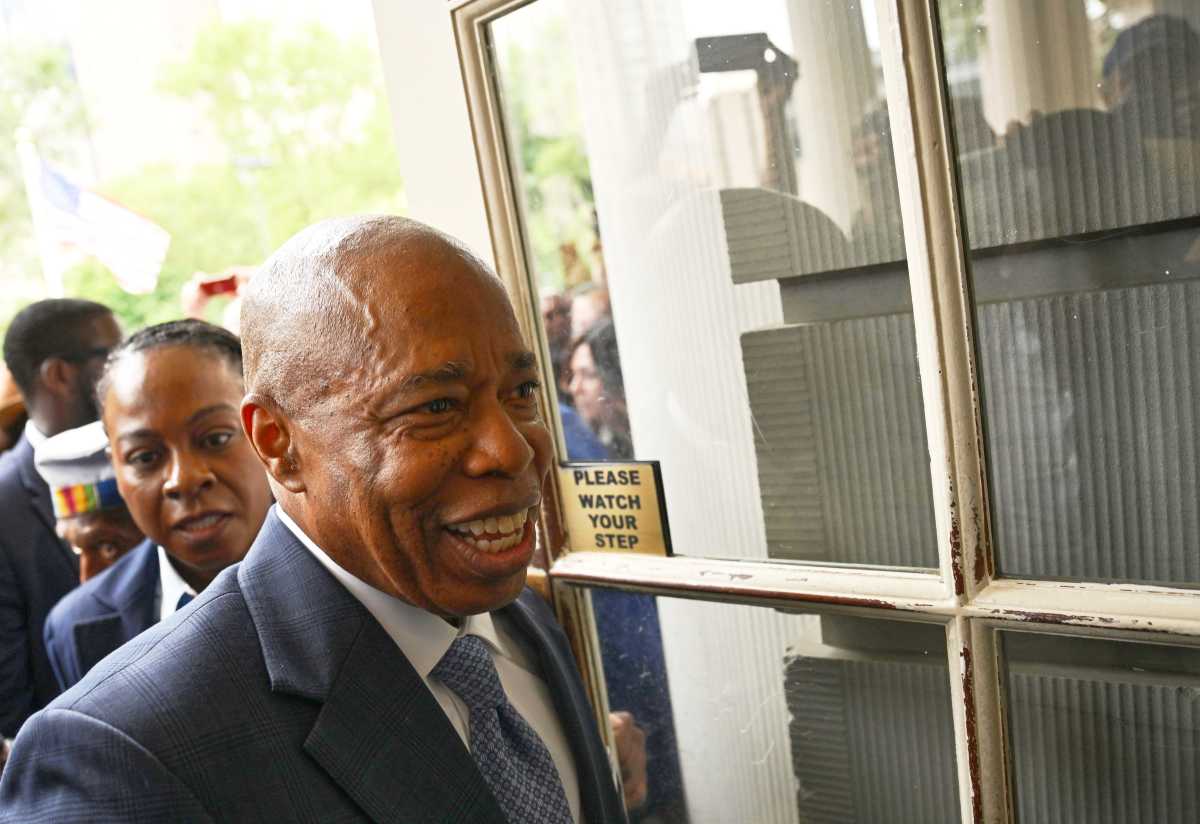Seventh Avenue is a dirty shame — and you can blame the city!
Park Slope’s main street has morphed into a trash-ridden dump after two city councilmen allowed a street-cleaning contract to expire — a contract that only came about because the Department of Sanitation couldn’t keep the retail strip clean.
For months, trash cans have consistently overflowed — dripping fluids that smell like rotting Chinese food and funky frat boy socks — into the restaurant-lined strip.
“I literally have to hold my nose when I walk down the street,” said Pamela Johnson, who lives on Garfield Place. “It looks like the worst part of the South Bronx in the 1970s.”
That’s because the city’s trash collection schedule is not frequent enough to keep the bustling street clean — and elected officials have chosen not to renew a contract with the Doe Fund, a non-profit that hires homeless men for clean-up crews.
The Department of Homeless Services, in conjunction with the Park Slope Civic Council, first inked the one-year, $40,000 contract in 2008 in order to maintain the street beyond the city’s duties. Now, Councilman Steve Levin (D–Park Slope) and Councilman Brad Lander (D–Park Slope) say the contract, which had been renewed for three years, is no longer cost-effective and sustainable.
What’s more, the street — which helped transform the neighborhood from a crime-plagued slum into a hub for the hip — has no formal merchant’s association, unlike its once-dirtier neighbor Fifth Avenue, where business owners pay an additional tax to provide additional sanitation pickups and supplement inadequate city services.
Under the now-defunct contract, workers emptied full trash cans, set the bags on the sidewalk, then relined the cans with new bags. They also painted street poles and swept sidewalks and gutters daily, going far beyond the Department of Sanitation’s infrequent street sweeping and trash collection — which dropped dramatically from three times per day to twice per week on commercial strips this past year.
The workers are gone, and as a result, trash is now fluttering down sidewalks. Of course, sidewalk clean-up and garbage duties have always been the responsibility of neighbors and merchants, said Craig Hammerman of Community Board 6, but after the contract ran out at the end of May, he began fielding phone calls about the “shabby” conditions between Flatbush Avenue and Seventh Street.
Indeed, merchants — many of whom say business is the anchor of the neighborhood — want the contract renewed.
“It’s a small price to pay,” said Edgar Loria, a manager of Cousin of John’s Café & Bakery. “That much trash attracts rats and mice — and people eating food don’t want to see it.”
Even so, will likely come down to lack of funds and shifting priorities: Levin said the contract is too expensive to renew, especially considering other “valid and deserving” groups — about 500 of in total — have requested money from the same “discretionary” fund, which councilmembers allocate to the district.
Levin added that he and Lander will investigate other ways to keep the street clean, noting, “We plan to work with merchants and figure out a way that’s more cost-effective.”
The councilmen later sent a joint statement noting that avoiding teacher layoffs and firehouse closures come before The Doe Fund.
“We have had to close multi-billion dollar budget gaps,” the statement notes.
In the meantime, businesses owners say they’ll pick up the slack — like they always do.
“Some businesses got lazy once the program started,” Louis Barricelli, owner of Cousin John’s. “Really, it’s up to us now.”


























